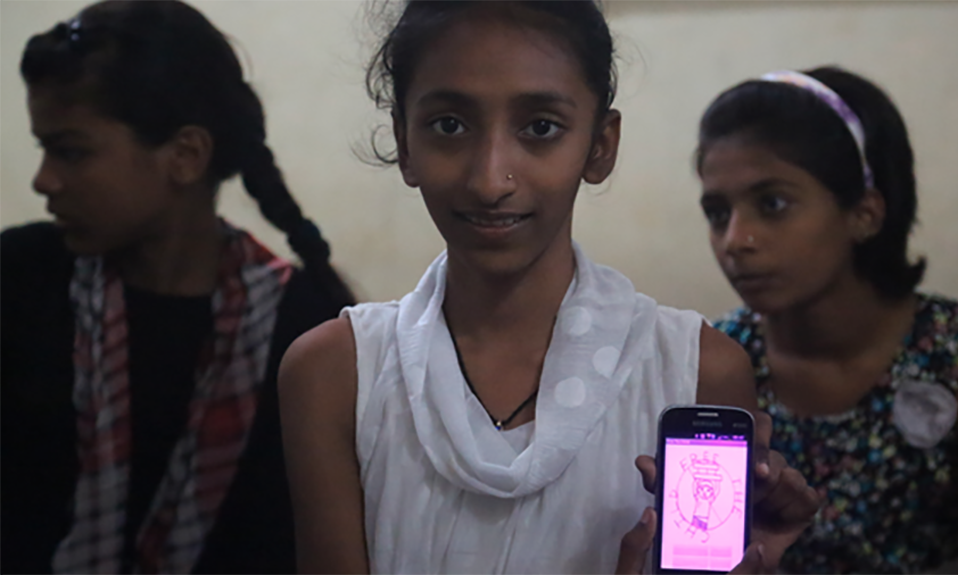Our brains are filled with neural pathways, connections made of bundles of neurons that receive and pass on information to different parts of the nervous system. New habits, experiences, practice, and any kind of learning, cause neural pathways to re- arrange and change. And this ability of the brain to constantly develop, grow, and evolve—the trait known as plasticity—is one of the most powerful traits we enjoy as humans. Throughout our lives, because of our brains’ plasticity, our intelligence and skill can grow when we put our minds to the task.
So when it comes to brainpower, the old slogan “Use it or lose it” isn’t quite right. A truer statement is “Use it, or work harder to develop it later on.”
Young children have twice as many synaptic connections as adults. As we grow, the brain actually reduces the number of connections because as functioning adults, set in our path, our brain doesn’t need as many. What happens in the early years of a girl’s life affects the formation of her brain. Every day, specific neural pathways are being generated and strengthened—or not. A girl who is encouraged to explore, hypothesize, observe, and discover patterns is going to develop the brain of a creative problem- solver. She will develop more acute powers of observation, an ability to concentrate, and a gift for generating ideas. Her brain will be calibrated to succeed in a world of rapid, continual change.

Photograph: Courtesy of Dharavi Diary
Conversely, unused neural pathways may atrophy or fail to activate. A girl whose curiosity is suppressed, whose mind seldom ventures into uncharted environs, who accepts the conventional role she’s been assigned, and who is disadvantaged by the fear of looking stupid may get good grades, but her brain will not be rich with neural pathways. It’s as if there is a blockade in her brain that reduces her aptitude for creative problem- solving.
Brain development in the first six to seven years sets the stage for the rest of a child’s life. Early experiences matter in ways that neuroscientists are still discovering. Genes and experiences are intertwined in determining capacities and talents.
Even more important—and surprising—is the fact that understanding how our brains can expand and change actually seems to enhance our ability to develop new skills. It’s an insight we owe to Carol Dweck and her concept of the growth mind- set. What Dweck has proven in study after study is that children who understand that their brains can grow tend to develop a growth mind- set. This knowledge can catapult learning in fields like entrepreneurship and the STEM subjects. Teach a girl that, with effort, she can become smarter, and she becomes more likely to make the effort to grow her mind and increase her knowledge and intelligence. And the sooner this process starts, the more likely that a girl will get this life- altering message and make the effort that will make her smarter.
At Venture Lab, we incorporate this message into our work with the very youngest children, ages four and five. We let them know that they have the power to stretch their brains, sharpen their minds, and become smarter. Once they get this, they develop a level of self- confidence and fearlessness that helps them reach their full potential as creative, competent individuals. They absorb the message I have good ideas. People are interested in my ideas. My ideas matter. And for most five- year- old girls, that’s a remarkable message—one they don’t hear often enough in mainstream society.
Yes, there are wonderful parents who impart this message of encouragement and empowerment to their daughters and sons. But all of us can do a better job of spreading the word about the growth mind- set—starting with the girls (and boys) whose lives we touch.

![Rehema, far right, plans to give back to her community by becoming a nurse. "We have doctors who come to our area from outside," she says. "I want to work in the same area [where I grew up] to be a role model for our friends who see me facing these challenges and succeeding."](https://abovewhispers.com/wp-content/uploads/2018/01/Rehema-and-girls-in-her-village-she-aims-to-be-a-role-model-for-them.jpg)